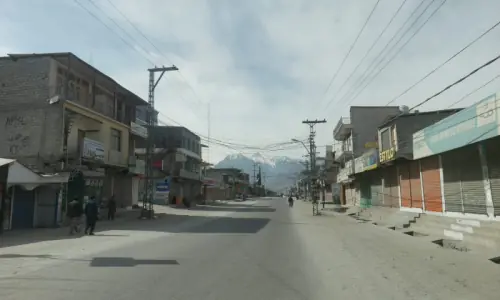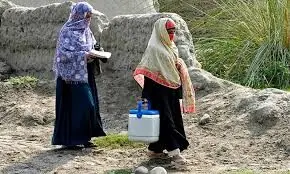HYDERABAD, April 22: Environmental pollution and consumption of polluted water are at the root of ever-shrinking life expectancy in countries like Pakistan where pollution fails to make to the top of the government’s priority list, say speakers at a seminar on “Urban and Rural Environmental Issues”.
The seminar organised by the Environmental Protection Agency (EPA) at Sindhi Language Authority to mark the Earth Day on Monday urged the agency to act on all environmental issues of the province.
Prof. Dr. Asadullah Kazi who presided over the event said that the EPA should now take action against the forces that contribute to pollution. Sufficient awareness had been created and it was now time for action, he stressed.
He urged people to have efficient domestic use of water and avoid throwing garbage in the streets and lanes as it contributed hugely to pollution. It was also on account of environmental pollution and consumption of polluted water that life expectancy in the country was smaller here than other environmentally clean countries, he said.
He quoted a UN report, which revealed that by 2025 the world population would increase and their water needs would increase by 56 per cent. It was, therefore, feared that nations could go to war over water, he said.
Mr Kazi said that factorises in Karachi discharged untreated runoff into the sea, which had endangered aquatic life and contributed to increasing level of toxins in the water.
Dr. Rasool Bux said that the method of handling sold waste through landfill sites had been discarded in advanced countries but unfortunately “we are still now preparing ourselves to introduce this procedure”.
He described it as one of the major causes for pollution and urged local governments to study other methods being adopted in developed countries so that not only the solid waste could be disposed of in a proper manner but pollution could also be contained.
Dr. Mumtaz Sohag said that municipal wastewater was in fact a treasure if it was properly utilised and recycled. This water could be recycled and used as a fertiliser for agricultural land because it was rich in organic compounds, which were beneficial for the soil’s fertility, he said.
He said that of existing available water 2.5 per cent was for consumption while 97.5 per cent was brackish.
Dr. Mohammad Ahsan Siddiqui, Dr. Mohammad Iqbal Banghar, Dr. Qazi Suleman and HDA official Abdul Malik Khatri also spoke at the seminar.































